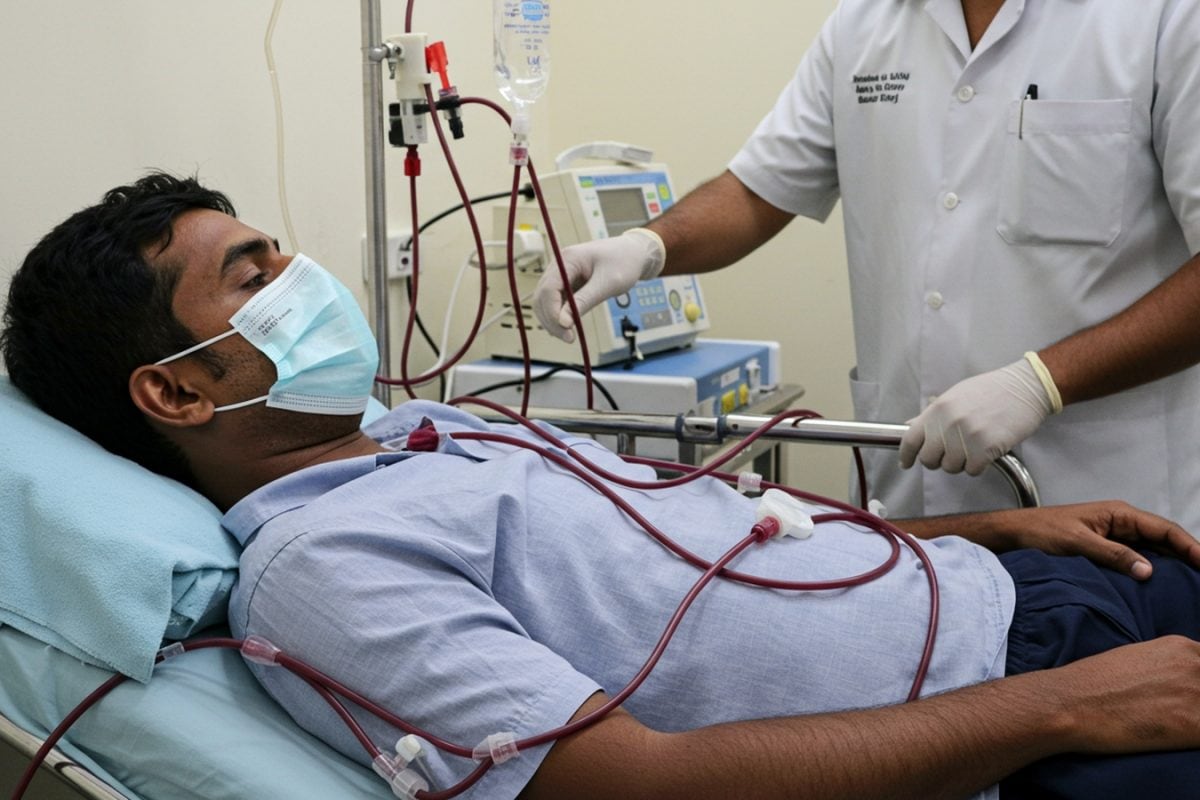

A 26-year-old kidney patient, Sarfaraz Ahmad, died in a hospital in Bijnor, Uttar Pradesh, after a power outage halted his dialysis treatment. The incident occurred at the district hospital, where a backup generator was rendered useless due to the lack of diesel fuel. This critical failure in essential medical infrastructure has sparked outrage and prompted investigations into the management and operation of the dialysis unit.
Sarfaraz Ahmad, a resident of Phulsanda village, was undergoing a routine dialysis session when the electricity supply was abruptly cut off. According to his mother, the dialysis machine stopped abruptly, trapping a significant portion of his blood inside. She recounted desperately pleading with the hospital staff to activate the generator, but her pleas went unanswered. Sarfaraz died shortly after the machine malfunctioned.
While medical experts clarified that typically only about 200 to 250 ml of blood circulates through the dialysis machine at any given time, they acknowledged that an abrupt power failure could severely destabilize critically ill patients. The sudden cessation of the dialysis process, combined with the lack of immediate backup power, created a life-threatening situation for Sarfaraz.
Hospital staff attributed the blame to Sanjeevani, the private firm contracted to manage the dialysis unit under a public-private partnership since 2020. They alleged that the firm had repeatedly failed to supply diesel for the generator, despite prior warnings and the known risk of power outages. This alleged negligence has become a focal point of the subsequent investigations.
Adding to the severity of the situation, the incident occurred during an official inspection of the hospital by Chief Development Officer (CDO) Purna Borah. The CDO found five other patients lying without power, lights, or fans, highlighting a systemic failure in maintaining basic services within the facility.
District Magistrate Jasjit Kaur visited the hospital and has taken decisive action, seizing all dialysis unit records and assuring that strict measures would be taken. Kaur expressed strong condemnation of the mismanagement and unsanitary conditions within the unit. She stated that a case would be registered against the responsible agency, and the firm would be blacklisted, preventing them from further involvement in public healthcare services.
This tragic incident underscores the critical importance of reliable infrastructure and responsible management in healthcare facilities, especially those providing life-sustaining treatments like dialysis. Across India, many patients struggle with access to consistent dialysis treatment due to machine malfunctions and infrastructure issues. In August 2024, for instance, six out of eight dialysis machines were out of order at GIMS Hospital in Kalaburagi, causing significant hardship for patients.
The incident in Bijnor is not an isolated case. In March 2017, three patients in Puducherry died due to a power outage during dialysis. Similar incidents have been reported where a lack of RO water to run dialysis machines has also resulted in patient deaths.
The Central Drugs Standard Control Organisation (CDSCO) is the regulatory body in India responsible for ensuring the quality of medical devices, including dialysis machines. Recent studies have highlighted the need for more indigenous manufacturing of dialysis machines to reduce costs and improve access to treatment. Strict adherence to CDSCO regulations is essential to prevent substandard equipment from entering the market, which can have fatal consequences for patients.
The death of Sarfaraz Ahmad serves as a stark reminder of the vulnerabilities within the healthcare system and the potentially fatal consequences of negligence and mismanagement. It highlights the urgent need for improved oversight, infrastructure maintenance, and accountability in the provision of critical medical services to protect vulnerable patients.